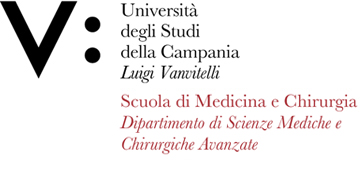Michele GRIECO
Insegnamento di MOLECULAR PATHOLOGY AND IMMUNOLOGY
Corso di laurea magistrale in MOLECULAR BIOTECHNOLOGY
SSD: MED/04
CFU: 8,00
ORE PER UNITÀ DIDATTICA: 64,00
Periodo di Erogazione: Primo Semestre
Italiano
| Lingua di insegnamento | INGLESE |
| Contenuti | The course will focus on the Molecular mechanisms responsible for pathological phenomena and the role of the Immune response in human diseases. Oncology, Immunology and Immunopathology will be discussed. |
| Testi di riferimento | The latest edition of: |
| Obiettivi formativi | COURSE OBJECTIVES/OUTCOMES: |
| Prerequisiti | B1 Knowledge of english |
| Metodologie didattiche | Frontal lessons |
| Metodi di valutazione | Oral examen to verify the accomplishment of the course objectives, especially for the understanding of the molecular mechanisms leading to pathological conditions. |
| Altre informazioni | ADDITIONAL READING: |
| Programma del corso | SYLLABUS (Detailed description): |
English
| Teaching language | English |
| Contents | The course will focus on the Molecular mechanisms responsible for pathological phenomena and the role of the Immune response in human diseases. Oncology, Immunology and Immunopathology will be discussed. |
| Textbook and course materials | The latest edition of: |
| Course objectives | COURSE OBJECTIVES/OUTCOMES: |
| Prerequisites | B1 Knowledge of english |
| Teaching methods | Frontal lessons |
| Evaluation methods | Oral examen to verify the accomplishment of the course objectives, especially for the understanding of the molecular mechanisms leading to pathological conditions. |
| Other information | ADDITIONAL READING: |
| Course Syllabus | SYLLABUS (Detailed description): |








